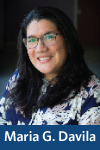I have always had a great experience at PRIM&R’s annual conferences and the 2019 Social, Behavioral, and Educational Research and Advancing Ethical Research Conferences (SBER19/AER19) were no exception. What I love most about PRIM&R and the (possibly magical) people who prepare this conference, is their ability to bring something considered old news and make it relevant again. I am not saying this in a pejorative way; I am saying that the conference reminds you why you are doing this job—being an IRB professional—and that the social justice goals we had 20 or 40 years ago are still relevant today.
A lot of the sessions I chose to attend I selected with the idea of learning a little bit more about the areas I think my organization’s IRB could benefit from, but also I picked sessions on new and exciting topics that I did not know much about. The conference started strong with a discussion of the relevance of the Belmont Report today by PRIM&R’s Executive Director, Elisa A. Hurley, PhD. Like Elisa, I believe in the basic principles the report puts forward, but I do also think that it is worth more discussion to ensure we are applying it with the research we evaluate—research that is becoming more complex and that affects more than the subjects enrolled in it. To be honest, at that point I had not read any publications that put forward the notion that the Belmont Report needed a Belmont 2.0 version.
Dr. Hurley mentioned that one of the areas that could be considered as not covered by the report is the notion of respect for and harm prevention of communities, including dignitary harm, as the report tends to be individualistic in its approach. That being said, the report was created in response to the Tuskegee Syphilis Study, not only to ensure that the injustices and affront to a vulnerable community would not happen again but also to try to regain confidence in research. Knowing that the report was conceived after the Tuskegee trial, I do not think it is a stretch to think that the report could also cover dignitary harm. After the experience of the Havasupai Tribe in Arizona, and how their samples were used for other studies and this profoundly affected the dignity of the tribe, I think all IRBs have in mind that we should ensure that respect for persons extends to the community of the study subject, based on the same notion of respect for persons.
The Belmont Report, we could easily argue, was also trying to “start over” by creating a framework that would regenerate public trust in research, especially from those communities who were affected by the research injustices of the past. Indigenous people in the US and all over the world still have distrust in the research enterprise, and there are big steps being taken by researchers working with these communities to improve this trust. Still, Belmont can be useful in the idea of respect for persons and their communities if we think about them as interdependent of each other, as much of these communities feel and operate.
In general, I feel that the Belmont Report is relevant and more applicable than we think, especially for communities intertwined with their members. Though the Belmont Report is an old document, it can always be seen with new eyes and new perspectives.
Maria G. Davila MD, CCRC, MA (Bioethics), is the Associate Director for Emory University IRB. She joined the IRB in August 2010. Maria is the team leader of the QA and Education team, which is in charge of auditing Emory IRB approve research studies and reviewing reportable events applications. Her team is responsible for providing federal regulations and P&P education to the Emory research community, IRB Staff, and IRB members. Under Maria’s leadership, the IRB Education and QA team have developed several guidance documents and worksheets and started educational, monthly webinars to provide up-to-date information to the Emory research community.
Before joining the IRB, she worked as a research associate for the Department of Orthopaedics for six years. During this time, Maria worked in a diverse range of studies, going from minimal risk studies up to Phase I research trials; helped with the development of quality assurance procedures for their research projects; and was the microsurgery instructor for residents and fellows. Maria has a foreign medical degree from Ecuador and a Master’s in Bioethics at Emory University.
Members of PRIM&R’s Blog Squad and other guest contributors are valued members of our community willing to share their insights. The views expressed in their posts do not necessarily reflect those of PRIM&R or its employees.
PRIM&R’s 2020 Advancing Ethical Research Conference (AER20) will take place virtually. We will present AER20 as a series of shorter, half-day online events spread out over three weeks in December (December 1-2, December 8-9, December 15-16).


No comments! Be the first commenter?